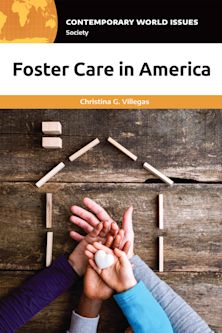Single Mothers in Contemporary Japan
Motherhood, Class, and Reproductive Practice
Single Mothers in Contemporary Japan
Motherhood, Class, and Reproductive Practice
This product is usually dispatched within 2-4 weeks
- Delivery and returns info
-
Flat rate of $10.00 for shipping anywhere in Australia
Description
Combining work and family remains a major challenge for married women in contemporary Japan, and it’s not uncommon for them to quit working when starting a family. Single mothers, by contrast, almost always work, regardless of the age of their children. Despite their eagerness to support themselves and their children through employment, their average income remains low and many live on a household budget close to the poverty line. This book examines how the difficult living conditions facing single mothers in Japan highlight not only the challenges they face in earning a family wage and managing the work-family balance, but also reveals the class dimensions of family life in contemporary Japan.
The need to make ends meet with few resources means that mothers may find it difficult to uphold the lifestyle they may consider as most appropriate for the upbringing of their children, and that they may have to choose between their presence at home, in line with the ideal of the middle-class housewife and mother, or devoting more time to earning an income that can pay for a good education. Social class, in this case, is not just a matter of education, occupation, or income, but is also expressed by mothers’ approaches to their children’s’ upbringing and future opportunities in education and employment. Based on life history interviews with single mothers, this study examines the gendered meanings of social class and social achievement and the role of maternal practices in shaping their children’s future life trajectories.
Table of Contents
Chapter 2: Educational Pioneers
Chapter 3: The Bubble Generation
Chapter 4: Becoming a Single Mother
Chapter 5: Motherhood and Class
Product details
| Published | 11 Apr 2019 |
|---|---|
| Format | Paperback |
| Edition | 1st |
| Extent | 156 |
| ISBN | 9781498529983 |
| Imprint | Lexington Books |
| Dimensions | 224 x 150 mm |
| Series | New Studies in Modern Japan |
| Publisher | Bloomsbury Publishing |
Reviews

ONLINE RESOURCES
Bloomsbury Collections
This book is available on Bloomsbury Collections where your library has access.


































